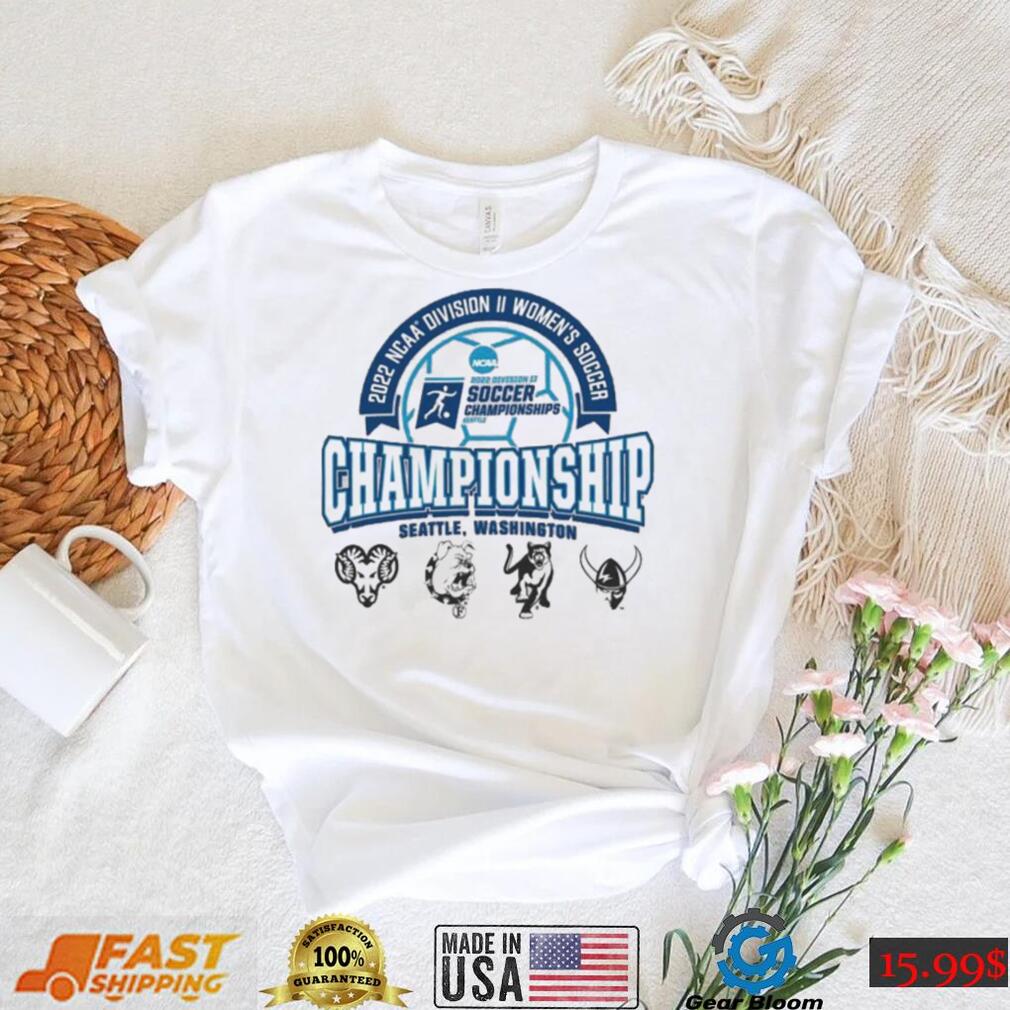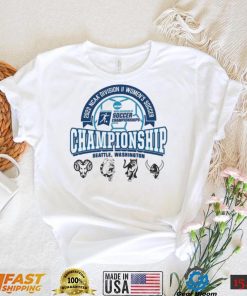Seattle Washington 2022 NCAA Division II Women’s Soccer Championship Shirt
So, I’ve been working at this company for nearly a Seattle Washington 2022 NCAA Division II Women’s Soccer Championship Shirt from January. I needed a job as was being made redundant and this popped up so I took it, it’s a night shift but work is work. Now, after about three months, I was asked by my colleague if I could cover his shift as he had an evening event to go to which I said that’s fine I came to find out it was a company event where everyone is invited to it but me. I shrugged it off as I thought I’m new so I guess they had it booked for a while. Kinda still sucked having to cover someone’s shift though as they were having fun and I’m stuck in the office. Anyways, fast forward to about a month ago I was doing paperwork and I came across an email stating Christmas party, I brought it up with my colleague he said is there? To which I said yeah at this place he said oh yeah I know I’m going to that. I was struck as I had not been approached or invited to it, what makes it worse is as there has been a boom in work lately they have took on about 6 new people about 3 months ago and they have all been added to the guess list and they class each other now as “family” while I’m stuck covering the guys shift and I was told I need to have the on call phone over Christmas because he has a family?! Well so do I!!!
 (Seattle Washington 2022 NCAA Division II Women’s Soccer Championship Shirt, men shirt)
(Seattle Washington 2022 NCAA Division II Women’s Soccer Championship Shirt, men shirt)Seattle Washington 2022 NCAA Division II Women’s Soccer Championship Shirt
Though many people refer to the holiday as Chinese New Year, Chinese people aren’t the Seattle Washington 2022 NCAA Division II Women’s Soccer Championship Shirt who celebrate. The holiday, which is Friday, Feb. 12, this year, is widely celebrated across East Asia and some parts of Southeast Asia. As such, the holiday goes by many names Tết in Vietnam, Losar in Mongolia, Imlek in Indonesia and Tsagaan Sar in Tibet, to name a few. Many of these communities traditionally hand out gifts like mandarin oranges or red envelopes filled with money, usually from an elder to children, or unmarried people. The Iu-Mien community, a Southeast Asian minority group from China, traditionally gives out dyed red eggs. Many East Asian communities will also light firecrackers, clean their houses from top to bottom useful during a pandemic and burn paper money for their ancestors. And lion dances, although commonly associated with Chinese culture, can be found in Lunar New Year celebrations across Vietnam, Korea, Tibet and Indonesia. One might also wear traditional outfits, such as Korean hanboks, or play games like yut and mahjong.
 (Seattle Washington 2022 NCAA Division II Women’s Soccer Championship Shirt, sweater)
(Seattle Washington 2022 NCAA Division II Women’s Soccer Championship Shirt, sweater) (Seattle Washington 2022 NCAA Division II Women’s Soccer Championship Shirt, ladie tee)
(Seattle Washington 2022 NCAA Division II Women’s Soccer Championship Shirt, ladie tee)- Production Time: All orders are processed within 3 – 4 business days.
- Shipping Time: You will receive your order anywhere from 5 – 10 business days (depending on the shipping method you chose) from the date that it is shipped out, not the date the order is placed.
- Return & Exchange: A full-refund of your purchase! Absolutely risk-free, no question asked. In case of defective or damaged goods, we will send a replacement to you (No any extra fee) within 30 days since your purchase.
- Tracking Number: When available, we will send you the tracking number with the confirmation email so that you can track the package online.
- Worldwide Shipping Available: At limotees, we ships products to over 100 countries worldwide. Shipping rates and fees may vary depending on your country or region.
- If you have any other queries, please feel free to email us at [email protected]
This Flowers having a Weird Mom builds character Xmas Day T-shirt, hoodie, sweater, tank top, long sleeve, and V-neck t-shirt is a made-to-order product, It is designed by TeeJeep LLC. This is a limited edition product was made in the USA.
Brand: TeeJeep Clothing LLC, Inc. - An online fashion company in the USA
At TeeJeep LLC, we have provided quality T-shirts that are sure to make you feel comfortable and cool even in the scorching heat or cold weather. We also seek to provide our customers with the highest level of customer service possible by adhering to customer satisfaction policies and an open communication style. T-SHIRT FEATURES: - High quality 100% Soft cotton (fiber content may vary for different colors) UNISEX shirt. HOODIE and SWEATSHIRTS FEATURES: - 50% Cotton; 50% Polyester (fibre content may vary for different colors) - IMPORTANT: Runs true to size. Are buyers responsibility to consult the size chart before placing the order. - The design is printed on the t-shirt with a digital printer. - If you want to CUSTOMIZE more this product, please send me a message. CARE: - Machine wash, with cold water, and inside out - Tumble dry on low or hang to dry - DO not iron directly on the design ♥ HOW TO ORDER T-SHIRT, HOODIE, SWEATSHIRT , LONGSLEEVE








